INBRE Summer Undergraduate Research Fellowship (iSURF) Program
2025 iSURF and iSURF-Flex Programs
Thank you for your interest! Applications for the 2025 iSURF/iSURF-Flex Program are now closed. Please see below for other 2025 summer research opportunities.

Program Dates
May 19, 2025 – July 18, 2025
Program applicants must meet the following criteria:
- Be a U.S. citizen or hold a valid Employment Authorization Document (EAD).
- Be currently enrolled in a STEM degree program at NSU.
- Have not yet earned a bachelor’s degree in a STEM field.
- Have an expected graduation date of Fall 2025 or later.
- Be enrolled in Fall 2025 courses at NSU by the start of the summer program.
Before you begin your NSU Summer research application
Please read the below program information before applying!
iSURF Program
Students applying for the iSURF program must commit to a full-time schedule of 40 hours per week, totaling 337 hours over 9 weeks. During this period, students are expected to:
- Dedicate 40 hours per week to research, Monday through Friday.
- Refrain from holding other employment during the program period.
- Not enroll in summer courses (in-person or online) during the program period.
Please ensure you are able to meet these requirements before applying to the iSURF program.
Students accepted into the program will be awarded a fellowship to earn up to $6,000, paid on an hourly basis, for participating in this mentored research experience during the program period.
*iSURF- FLEX Program
Students applying for the iSURF-Flex Program must:
- Be enrolled in BIOL 450/450L for Spring 2025 and have successfully completed the course in Spring 2025.
- Be able to commit to multiple research days per week, as determined by their faculty mentor (approximately 26 days).
- Attend weekly workshops and journal clubs (typically 2-4 sessions per week).
- Provide a rationale in their personal statement explaining why they cannot participate in the regular 9-week iSURF program.
Students accepted into the program will be awarded a fellowship to earn up to $3,560 paid on an hourly basis, for participating in this mentored research experience during the program period.
*Important Note: Important Note: The iSURF-Flex program has limited spots and is intended for students who cannot commit to 40 hours per week. It also requires completion of BIOL 450/450L in the spring before the program begins. Due to the limited availability of iSURF-Flex, students applying for the full-time program have a better chance of being selected. For those who can commit, we highly recommend the full-time iSURF program, as the 40-hour per week schedule provides a more immersive experience, stronger connections, and fewer disruptions.
Personal Statement
Applicants must write and submit a personal statement that addresses the prompts below. The personal statement should be no longer than 1 page (250-300 words).
Personal statement prompts:
1. What specific topic in research interests you the most?
- Share the research topic you’re passionate about and briefly explain why it excites you.
2. How does this research interest connect to your goals?
- Discuss how your chosen research topic aligns with your academic pursuits and career aspirations (such as jobs you’re interested in or fields you want to enter).
- Explain why this research is important to you personally and how it supports your long-term objectives.
3. What do you expect to learn in the iSURF/iSURF-Flex program?
- Focus on the specific skills, knowledge, or experiences you hope to gain from the program. This could include learning specific techniques or methodologies, collaboration with peers and mentors, or exposure to real-world applications of your studies.
- Explain how these expectations will contribute to your growth as a researcher and your future career.
4. For iSURF-FLEX applicants only:
- If you are applying for the FLEX program, explain why the flexible schedule is necessary for you and how it fits your circumstances.
Other Summer Research Opurtunities
Alaska
- Program Overview:
Students will undergo a 10-week research experience in biomedical or behavioral research at UA campuses or in Alaska. The program includes a virtual introduction covering research methods, ethics, and goal setting, with opportunities for career development and participation in additional research programs. - Program Dates: Mid May – Mid August
- Be on the lookout for applications for the 2025 summer research. Visit our website for more information on Alaska INBRE.
- Contact:
Kristin O’Brien, Student Research Program Lead, University of Alaska Fairbanks
kmobrien@alaska.edu
Learn More
Hawaii
- Program Overview:
This is a paid 8-week summer research experience, where students will engage in research under a Hawaii INBRE investigator at the John A. Burns School of Medicine (JABSOM). In addition to research, students will participate in weekly seminars, journal clubs, and present a poster at the end of the program. - Program Dates: June – July
- Be on the lookout for applications for the 2025 summer research. Visit our website for more information and future application dates.
- Contact:
Juan Mendoza, Program Administrator, University of Hawaii Manoa
juanmend@hawaii.edu
Learn More
Idaho
- Program Overview:
The Idaho INBRE Program provides paid research awards for students interested in biomedical research. The INBRE RAIN Undergraduate Research Student Exchange offers competitive monetary awards for mentored research. Selected fellows will work full-time for 10 weeks, attend professional development sessions, scientific seminars, and present their work at the Idaho INBRE Research Conference. - Program Dates: May 19th – July 30th, 2025
- Applications for the 2025 summer research are currently closed. Visit our website for more information and future application dates.
- Contact:
Ashley Bogar, Evaluation Director and Statewide Co-Program Manager, University of Idaho
ashley@uidaho.edu
Learn More
Montana
- Program Overview:
This program requires a 10-week full-time commitment to a project in biomedical sciences. Students will work under an MSU faculty member’s guidance and are expected to present their findings at the conclusion of the program. - Program Dates: Mid May – Mid August
- Be on the lookout for applications for the 2025 summer research. Visit our website for more information and future application dates.
- Contact:
Dr. Sarah Codd, Director of Montana INBRE Student Programs, Montana State University
scodd@montana.edu
Learn More
Nevada
- Program Overview:
A 10-week fellowship for students interested in biomedical research, offering a $7,200 award. The program includes a guided research experience, training courses, seminar presentations, and a final research presentation. - Program Dates: June – August
- Applications for the 2024 summer are currently closed. Visit our website for more information and future application dates.
- Contact:
Christy Song, Program Coordinator, IDeA Grants, University of Nevada, Reno
cmsong@unr.edu
Learn More
New Mexico
- Program Overview:
An 8-week, full-time paid summer research program for undergraduate students, offering tracks in Bootcamp, Internship, and Bioinformatics. This program enhances research skills and provides networking opportunities. - Program Dates: June 4th, 2025 – August 2nd, 2025
- Application Deadline: January 24th, 2025
- Contact:
Chantel Ibarra, Program Specialist, New Mexico State University
aurora@nmsu.edu
Learn More
Wyoming
- Program Overview:
The Wyoming INBRE Student Program provides research opportunities for students interested in biomedical research. - Program Dates: May – July
- Be on the lookout for applications for the 2025 summer research.
- Contact:
Annie Bergman, Ph.D., WY INBRE Student Program Director, University of Wyoming
abergman@uwyo.edu
NSU STEM Faculty Mentor Research Interest

Amber Howerton
Associate Professor of Chemistry
My research explores protein chemistry, inflammation, and pathogenic microbiology. I primarily study spore germination in Clostridium difficile (C. diff) and Bacillus anthracis (anthrax). Current projects include characterizing C. diff in dogs, testing novel antibiotics, studying anthrax germination mutants, exploring natural compounds’ effects on cytokine production in dendritic cells, characterizing novel fluorophores in living cells, and understanding the population dynamics of gut flora in C. diff-infected rodents.
Not participating in the 2025 summer research programs

Bryan Sigel, Ph.D.
Professor of Biology
My research focuses on the intersection of human and environmental health. My projects investigate novel microbial communities in freshwater springs of the Spring Mountains, NV, and explore the population genetics of coyotes and peregrine falcons. Students involved in these projects gain valuable research skills across multiple disciplines, including field data collection, molecular biology techniques such as nucleic acid extraction and polymerase chain reaction (PCR), bioinformatics, R programming, and GIS spatial analysis.
Participating in the 2025 iSURF program
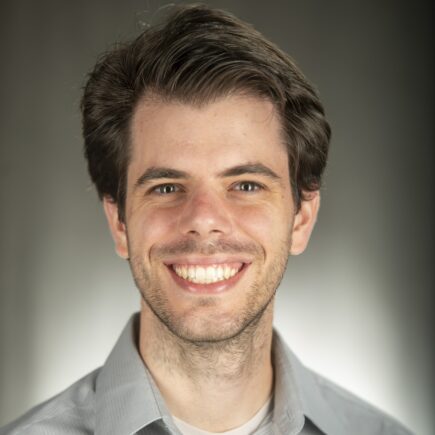
Chad Curtis, Ph.D.
Assistant Professor of Data Science/Analytics
My research interests lie at the intersection of engineering, medicine, and data science. I’ve developed a workflow that uses nanoparticle probes to characterize the nanoparticle-tissue microenvironment interface through predictive machine learning models, which inform the design of nanoparticle platforms for drug delivery. This summer, my research projects will focus on three areas: fluorescent nanoparticle tracking using machine learning, interdisciplinary data science collaborations with genetics and environmental datasets, and implementing metacognitive and gamification interventions in undergraduate research.
Participating in the 2025 iSURF-Flex program
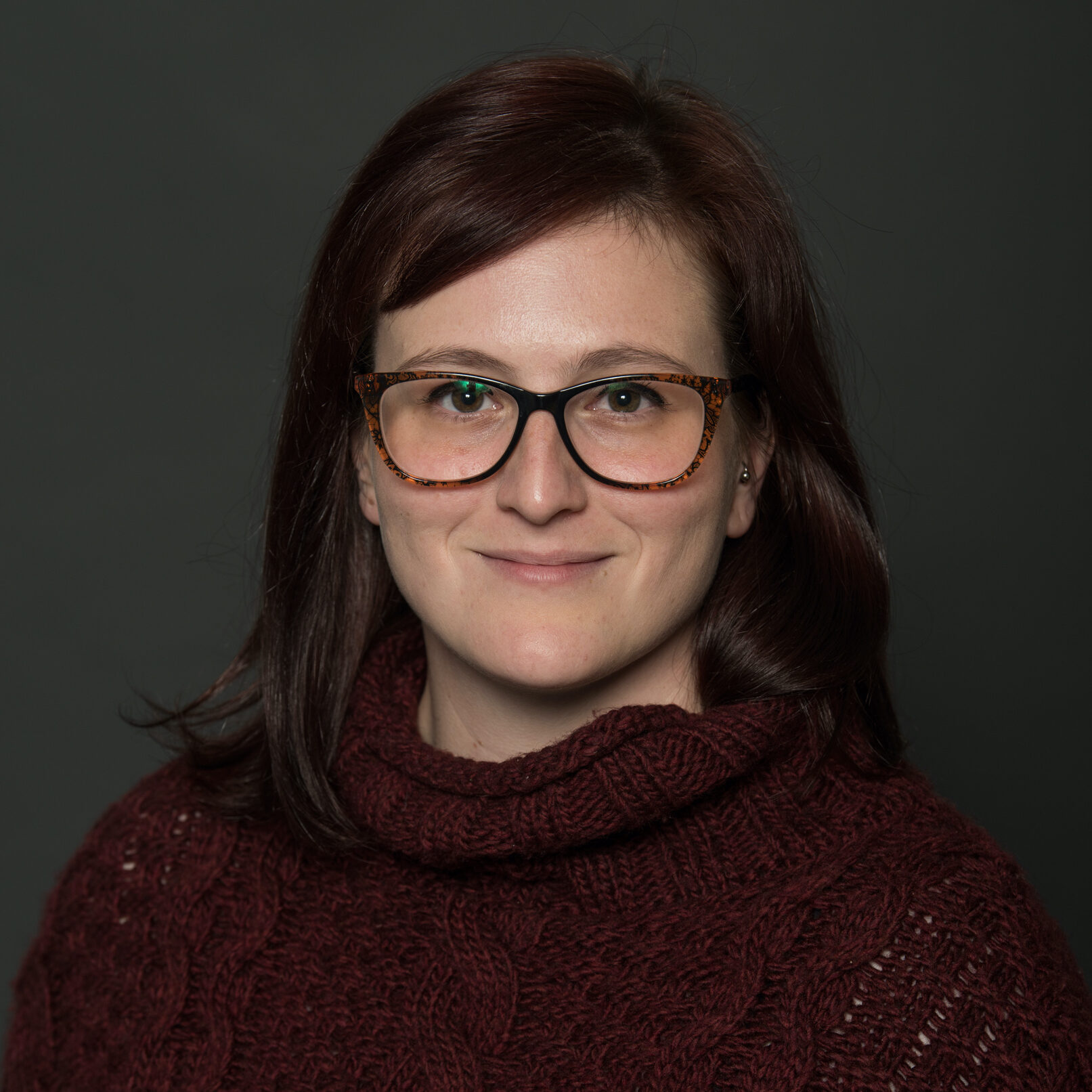
Corey Fernandez, Ph.D.
Assistant Professor of Psychology
I am a cognitive neuroscientist studying how the mind and brain learn and remember. Memory not only helps us recall the past but also shapes internal models of the world, or “cognitive maps,” which guide our behavior and decisions. My research explores how these cognitive maps form through experience and why individuals differ in this process. Currently, I am investigating how acute stress impacts memory integration. For the Summer 2024 INBRE project, students will pilot a stress manipulation and develop a protocol to measure cortisol levels throughout the experiment.
Participating in the 2025 iSURF program

Courtney Cooper, Ph.D.
Assistant Professor of Chemistry
Not participating in the 2025 summer research programs
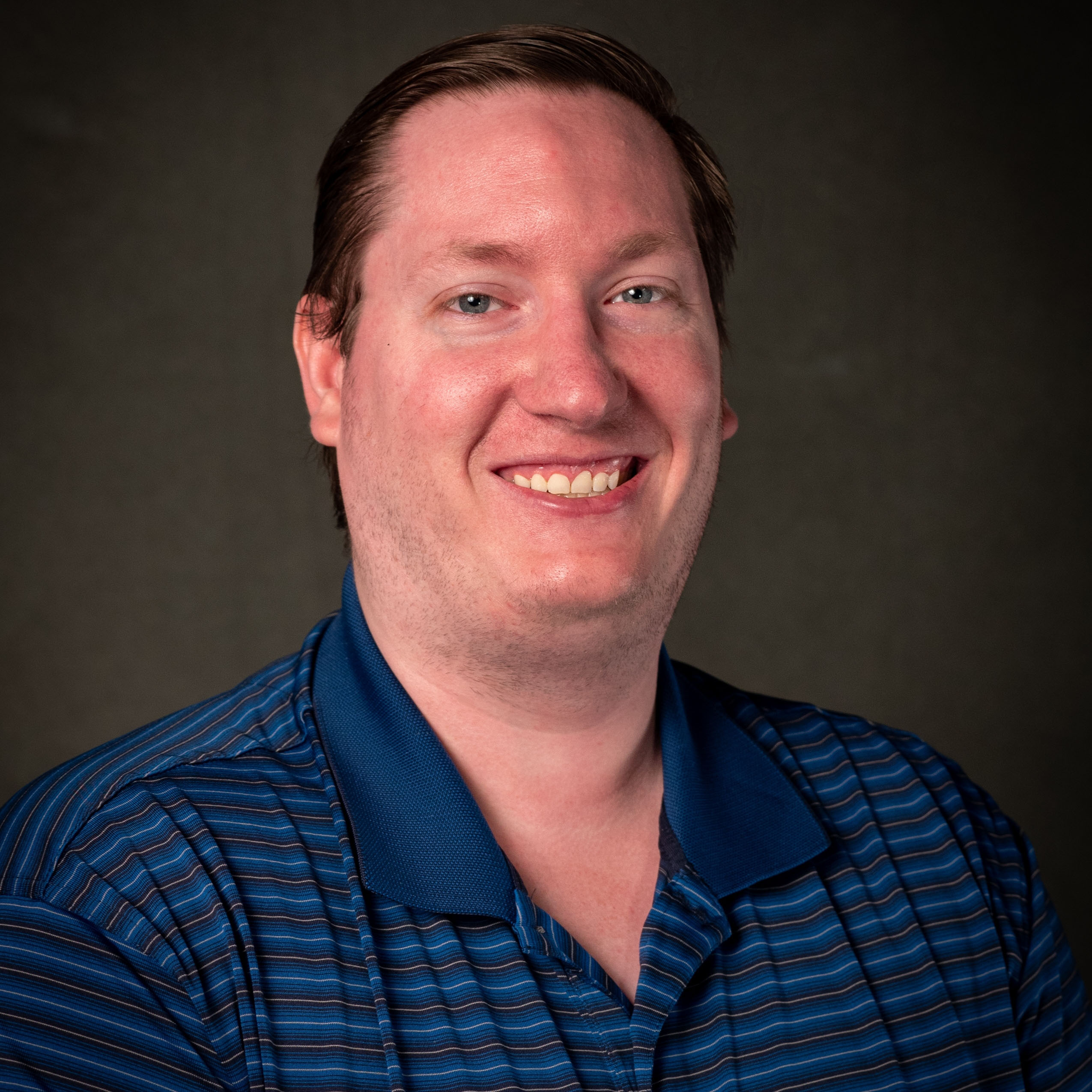
David Cooper, Ph.D.
Assistant Professor of Chemistry
My research interest focuses on fluorescence photobleaching. Students participating in this project will explore fluorescence photobleaching by measuring and extracting decay rate constants of fluorescence intensities during prolonged exposure. We will compare decay rates between different fluorophores and various solution conditions designed to alter photobleaching lifetimes. Students will learn essential methods, including fluorescence microscopy techniques, data analysis, and experimental design, all of which are crucial for understanding the underlying mechanisms of fluorescence and enhancing their research skills.
Not participating in the 2025 summer research programs

El Hachemi Bouali, Ph.D.
Assistant Professor of Geosciences
My summer research in the Spring Mountains focuses on water quality, hydrogeology, and environmental health. I collaborate with Friends of Nevada Wilderness to collect data for the Springs Stewardship Institute and develop independent projects related to the area. My research utilizes handheld water quality instruments, drones, thermal cameras, and GIS software for spatial mapping and 3D modeling. Students interested in aquatic microbiology can join microbial diversity studies with NSU faculty. Fieldwork includes hiking in challenging conditions, so adaptability is essential.
Not participating in the 2025 summer research programs

Holly Martin Ph.D.
Assistant Professor of Microbiology
I am a microbiologist studying host-microbe interactions, antibiotic resistance, and mutagenesis. This summer, my research will focus on understanding stress biology in Staphylococcus aureus, including antibiotic-resistant strains like MRSA. Students will use classical microbiology and advanced molecular biology techniques to investigate how S. aureus responds to cellular stress, aiming to uncover mechanisms that promote survival under adverse conditions. My research aims to contribute to developing novel strategies to combat antibiotic resistance in pathogenic bacteria.
Participating in the 2025 iSURF program
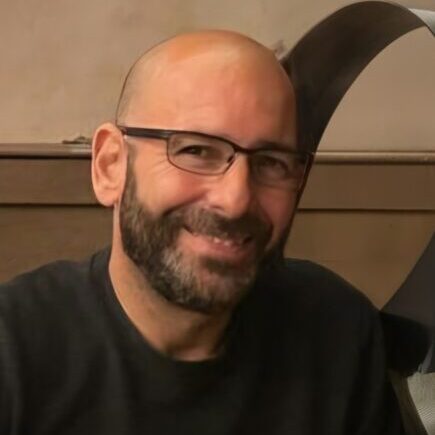
Jason Giuliani Ph.D.
Lecturer of Physical Sciences
I am a physicist focused on researching nanomaterials, particularly nanoparticles, which have diverse applications such as biosensors, MRI contrast agents, cancer therapies, photovoltaics, and drug delivery systems. This summer, my project will develop a next-generation magneto-plasmonic sensor using nanoparticles. The first stage involves creating protocols for synthesizing and characterizing these magnetic and plasmonic nanoparticles. Students will be mentored on various aspects of the project, gaining skills in wet chemical synthesis, electrochemistry, electron microscopy, and material fabrication to enhance current biosensor technologies.
Participating in the 2025 iSURF program

Jennifer Edmonds, Ph.D.
Associate Professor of Biology
I am an ecosystem ecologist interested in linking plant and animal biodiversity to carbon and nutrient cycling, especially in aquatic ecosystems. My previous research has focused on microbial communities in plant roots, sediments, and hydroponic systems, studying how these “good bacteria” support ecosystem processes like water purification and pollution control. For Summer 2025, students will document the biodiversity of Nevada’s Oasis Valley, a region under potential mining threat, collaborating with The Nature Conservancy to explore regenerative agriculture and assess water quality.
Participating in the 2025 iSURF-Flex program
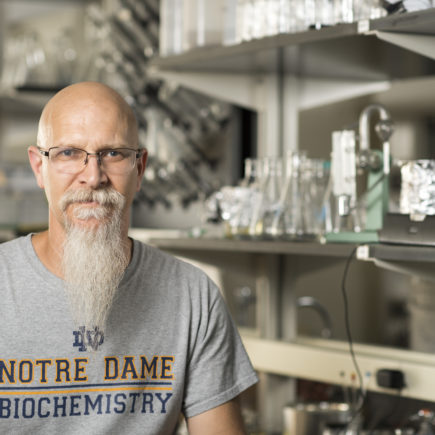
Lance Hellman, Ph.D.
Assistant Professor of Human Health Sciences
This summer, I will focus on two projects. The first involves studying antigen stability when bound to the major histocompatibility complex (MHC) in immunology. The second project will explore a DNA repair protein that contributes to certain malignancies becoming resistant to alkylating chemotherapeutics. Students working on these projects will perform experiments and learn techniques such as thermal stability assays, protein and DNA purification, gene expression, and gel electrophoresis, developing skills applicable to future research and clinical settings.
Participating in the 2025 iSURF program
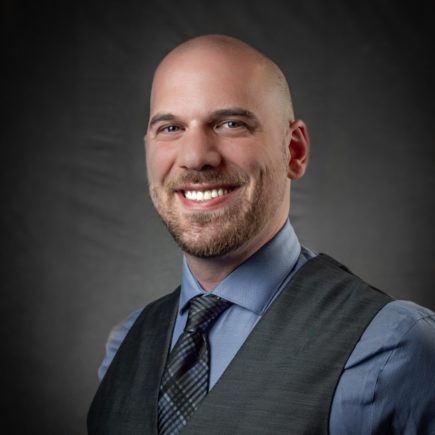
Nick Arnet, Ph.D.
Assistant Professor of Chemistry
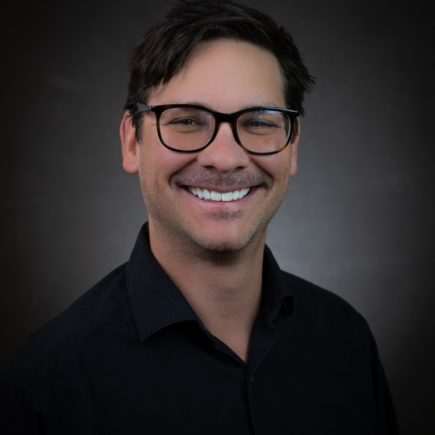
Joseph Dertien, Ph.D.
Assistant Professor of Biology
My research explores the identification of plant and fungal species through DNA metabarcoding of soil samples. This technique is essential for detecting cryptic species and those in seed banks that traditional methods miss. It has broader applications, such as modeling species distribution changes due to climate change and wildfires. Additionally, it can identify pathogenic eukaryotic organisms, which is important for human health research. For instance, an undergraduate project utilized Oxford nanopore sequencing and qPCR to detect Coccidioides, the fungus causing Valley Fever.
Not participating in the 2025 summer research programs
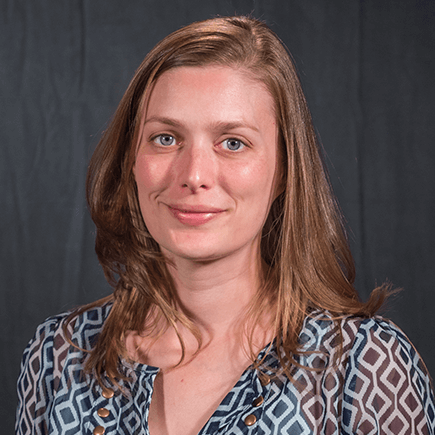
Kayla Bieser, Ph.D.
Associate Professor of Biology/Chair • Department of Physical and Life Sciences
My current research focuses on the NSF-funded project, Fly-CURE, where students in BIOL 300 (genetics) engage in hands-on, inquiry-based research to identify cancer-causing mutations in fruit flies (Drosophila melanogaster). My students and I have published our findings in the journal microPublication Biology. This research has led to a bioinformatics expansion course (BIOL 416), where I teach students about working in Bash, genomics workflows with prokaryotic data, and D. melanogaster genomes to identify potential cancer-causing genes.
Not participating in the 2025 summer research programs
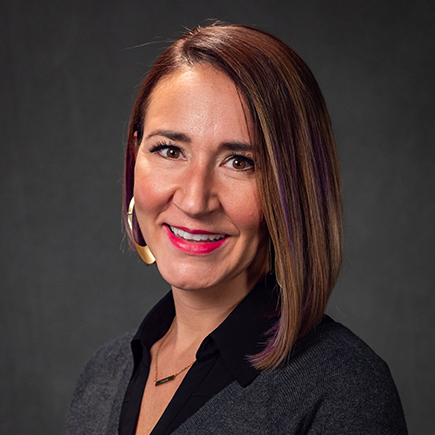
Samantha Jewell, Ph.D.
Associate Professor of Biology
My research focuses on isolating and identifying novel antibiotic-producing bacteria from Las Vegas soils. I use biochemical techniques to assess bacterial characteristics, conduct antimicrobial assays against Staphylococcus aureus and Escherichia coli, and perform genetic sequencing for identification. Students involved in this project will learn various microbiological techniques, including sample collection, culturing, and antimicrobial testing, while contributing to the research. This hands-on experience will enhance their understanding of antibiotic discovery and microbial diversity.
Not participating in the 2025 summer research programs
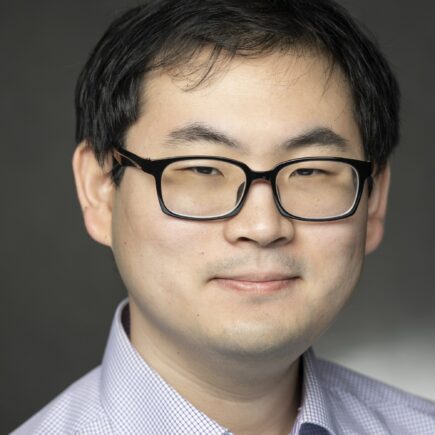
Sungju Moon Ph.D.
Assistant Professor of Mathematics
Dr. Moon’s research centers on nonlinear dynamical systems and mathematical modeling, with a focus on epidemiological modeling and numerical weather prediction. The epidemiological project will build an agent-based model to simulate epidemic events, such as infectious diseases or misinformation, based on student interests. The weather prediction project will quantify uncertainties in urban heat waves and develop indicators to assess potential health hazards. There may also be opportunities to collaborate with Dr. Curtis on modeling Lake Mead’s water levels. Students will learn dynamical systems theory, agent-based modeling, and collaborative research.
Participating in the 2025 iSURF-Flex program. The iSurf-Flex program with Dr. Moon will conclude by June 27.